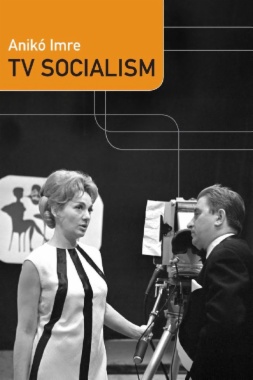In TV Socialism, Anikó Imre provides an innovative history of television in socialist Europe during and after the Cold War. Rather than uniform propaganda programming, Imre finds rich evidence of hybrid aesthetic and economic practices, including frequent exchanges within the region and with Western media, a steady production of varied genre entertainment, elements of European public service broadcasting, and transcultural, multi-lingual reception practices. These televisual practices challenge conventional understandings of culture under socialism, divisions between East and West, and the divide between socialism and postsocialism. Taking a broad regional perspective encompassing Eastern Europe and the Soviet Union, Imre foregrounds continuities between socialist television and the region’s shared imperial histories, including the programming trends, distribution patterns, and reception practices that extended into postsocialism. Television, she argues, is key to understanding European socialist cultures and to making sense of developments after the end of the Cold War and the enduring global legacy of socialism.
- Cover
- Contents
- Acknowledgments
- Introduction: Why Do We Need to Talk about Socialism and TV?
- Part I: Genres of Realism and Reality
- Chapter 1: From Socialist Realism to Emotional Realism
- Chapter 2: Tele-education
- Chapter 3: Crime Appeal
- Chapter 4: The Great Socialist Game (Show)
- Chapter 5: Postsocialist Ethno-Racial Reality TV
- Part II: Genres of History
- Chapter 6: The Historical Adventure Drama
- Chapter 7: Postsocialist Nostalgia and European Historical Drama
- Chapter 8: Commercials as Time-Space Machines
- Part III: Genres of Fiction
- Chapter 9: Women and TV
- Chapter 10: Socialist Soaps
- Part IV: Genres of Humor
- Chapter 11: Socialist Comedy
- Chapter 12: (Post)socialist Political Satire
- Afterword: Afterward
- Notes
- Bibliography
- Index
- A
- B
- C
- D
- E
- F
- G
- H
- I
- J
- K
- L
- M
- N
- O
- P
- Q
- R
- S
- T
- U
- V
- W
- Y
- Z

